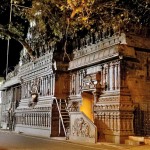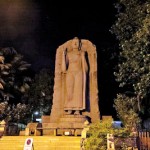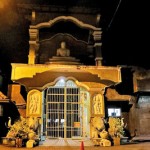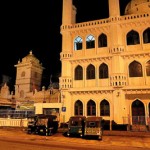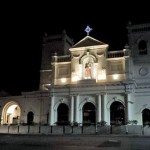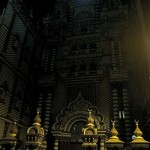News
Places of worship tripped up by troubling tariffs
By Kasun Warakapitiya
The chief incumbent, Ven Dickumbure Saddhathissa Thera told the Sunday Times that this was the highest bill it had received in 18 years. “Our bill usually is between Rs 400 and Rs 500, but last month it was Rs 11, 810.’’
He said that the temple, which is near 50 illegal settlements, has 36 resident monks. Among them there are 20 student monks.
Ven Saddhathissa Thera also said that the 50 families living near the temple are barely managing to provide alms for the 36 monks.
All religious places, including churches and mosques, have been jolted by the new electricity tariffs.
- Mayurapathi Kovil
- Temple opposite the BMICH
- Sambodhi Vihara
- Dawatagaha mosque
- Kochchikade Church
- Red Mosque Pettah
- Siri Dhammakiththikarama Purana Viharaya Rukmalgama
Rev Father Anthony Ranjith of St Joseph’s Church Wennapuwa said the charges for four churches including his church, is between Rs 38,000 and Rs 45,000, but last month’s bill was Rs 138,000.
“Our churches depend on donations from people, and our means of income has not increased. We are finding it very difficult to manage the expenditure,’’ he said.
Churches have other expenses such as food and medicine, he said.
“Apart from that, we have to help the people in need who are facing difficulties due to the prevailing economic situation.’’
The chairman of the Devatagaha Mosque, Mr Riyaad Salley told the Sunday Times that some politicians have not paid their bills.
Mr Salley said the mosque is using electricity only when necessary. He is also concerned that the people are also forced to pay high tariffs.
A chairman of grand mosque in Colombo 12, Thoufeek Zubyr said that he was surprised after he received an electricity bill this week for Rs 250,000.
“Earlier, the bill ranged between Rs 40,000 and Rs 50,000, but now it has increased by five times. This is unbearable and we are unable to pay,’’ he said.
Meanwhile, the chief prelates of the three Buddhist chapters have written to President Ranil Wickremesinghe calling for a concessionary tariff rate.
However, the chairman of the Public Utilities Commission of Sri Lanka, Mr Janaka Ratnayake said electricity tariffs will not be reviewed and would only do so if the Finance Ministry or Treasury provides a concession to religious places and allocates money for the Ceylon Electricity Board to cover its losses.
A group of monks including Ven Pahiyanagala Ananda Thera met the Minister of Power and Energy Kanchana Wijesekera.
Ven Ananda said the minister had said that tariffs are decided by the PUC and he has no authority to revise them.
“However, the minister proposed to us that temples and religious places which cannot pay electricity bills will be identified and concessions will be provided, and also select 200 to 300 temples to provide solar panels,’’ he said.
He complained that the minister was unable to provide a sustainable solution.
However, Minister of Power and Energy Kanachana Wijesekara said that everyone is affected due to the increase in tariffs.
He said the CEB had borne financial losses because charges had not been increased since 2014. The CEB has to pay Rs 80 billion to the Ceylon Petroleum Corporation and also pay Rs 45 billion for renewable energy suppliers over the last 10 months.
“As we are unable to make payments, we requested PUCSL to increase tariffs, then they met and discussed for two months and decided to provide 60% of CEB’s request,’’ he said.
He said that the subsidy given to religious places was earlier covered by domestic, business or economy category users. Out of 48,682 electricity connections given to religious places, 12,000 face higher tariffs.
He proposed solar panels, but said there is no foreign exchange to purchase them.
Meanwhile, the Buddha Sasana and Religious Affairs Ministry Secretary, Mr Somaratne Vidanapathirna told the Sunday Times talks are being held about ways to reduce electricity bills of religious places. Proposals have been made and the response from Minister Vidura Wickremanayaka is awaited. He did not say what the proposals were.
| Practical ways sought to help religious places President Ranil Wickremesinghe has assured the Mahanayaka Theros that measures would be introduced to ensure that religious activities will not be disrupted due to the electricity tariff increase. Solar panels will be installed, he said, and efforts will be made to find out about temples and religious places with high electricity consumption. Lay people will be trained and appointed to manage electricity consumption under the guidance of the Power and Energy Ministry. The government would also intervene and provide solar panels to temples with very high electricity bills, on a priority basis for selected religious places. | |
The best way to say that you found the home of your dreams is by finding it on Hitad.lk. We have listings for apartments for sale or rent in Sri Lanka, no matter what locale you're looking for! Whether you live in Colombo, Galle, Kandy, Matara, Jaffna and more - we've got them all!


